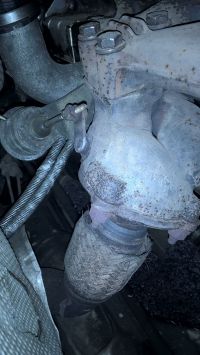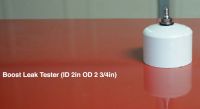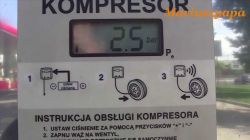Hello,
such a question is it a standard that there is a problem with the service of 1.8 turbo engines?
It means that I have the impression that for many mechanics the VAG group is only 1.9 tdi.
According to the logs, I have a leak in the inlet, I have been to three sites and in one they say that it must be specialized equipment with a compressor for measuring pressure and they do not have it, in the second that the car is going beautifully, what do I want?
in the third, it was suggested that I should replace the candles, of course, after the replacement, the problem did not disappear.
You can clearly hear the whistle when choking the car from the bottom and it goes above 3500 rpm only, although one mechanic suggested that there is a bar on the turbo and not the steering wheel, so there is a turbo hole, but the logs show that it gets up late.
How am I supposed to approach the subject now? Only ASO remains in such problems?
Well, because the car goes as much, but the computer shows that the required value of, for example, air is not equal to the actual value obtained.
Now suppose there is a hole in the intake, how to fix it? You can't move without connecting the compressor?
Could the limited response to gas also be related to a leaky intake in this engine?
The damn problem is to have such a car repaired and pick it up in 2-3 days and pay it, they will take care of it at all.
Maybe because the car is almost 20 years old.
I am talking about the Golf IV 1.8 turbo from 99.
such a question is it a standard that there is a problem with the service of 1.8 turbo engines?
It means that I have the impression that for many mechanics the VAG group is only 1.9 tdi.
According to the logs, I have a leak in the inlet, I have been to three sites and in one they say that it must be specialized equipment with a compressor for measuring pressure and they do not have it, in the second that the car is going beautifully, what do I want?
in the third, it was suggested that I should replace the candles, of course, after the replacement, the problem did not disappear.
You can clearly hear the whistle when choking the car from the bottom and it goes above 3500 rpm only, although one mechanic suggested that there is a bar on the turbo and not the steering wheel, so there is a turbo hole, but the logs show that it gets up late.
How am I supposed to approach the subject now? Only ASO remains in such problems?
Well, because the car goes as much, but the computer shows that the required value of, for example, air is not equal to the actual value obtained.
Now suppose there is a hole in the intake, how to fix it? You can't move without connecting the compressor?
Could the limited response to gas also be related to a leaky intake in this engine?
The damn problem is to have such a car repaired and pick it up in 2-3 days and pay it, they will take care of it at all.
Maybe because the car is almost 20 years old.
I am talking about the Golf IV 1.8 turbo from 99.





